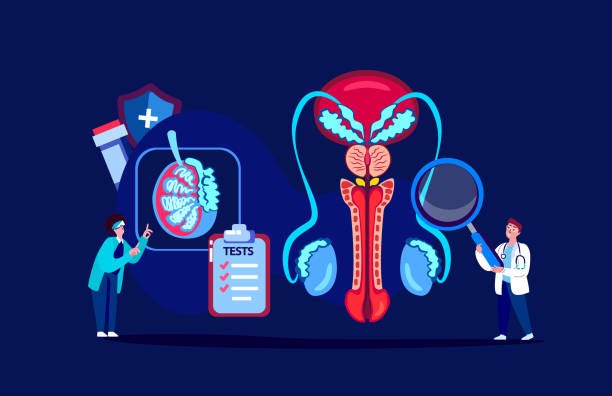Andrology is a specialized field of medicine that focuses on male health, particularly related to the male reproductive system and urological issues unique to men. The term “andrology” is derived from the Greek words “andros” (meaning man) and “logos” (meaning study). Andrologists are medical professionals who diagnose and treat conditions related to male fertility, sexual dysfunction, and hormonal imbalances. This field covers a broad spectrum of male health issues, including erectile dysfunction, male infertility, testicular diseases, and disorders related to testosterone production.

Scope of Andrology:
- Male Infertility: Andrology deals extensively with male infertility issues, such as low sperm count, poor sperm motility, and structural abnormalities in the reproductive tract. Treatments may include medication, lifestyle changes, or surgical interventions.
- Erectile Dysfunction (ED): This is one of the most common conditions treated by andrologists. ED can be caused by various factors, including cardiovascular disease, diabetes, hormonal imbalances, and psychological issues. Treatment options range from oral medications and hormone therapy to surgical procedures and counseling.
- Hormonal Disorders: Andrologists diagnose and manage conditions related to low testosterone levels, such as hypogonadism. They may prescribe hormone replacement therapy and monitor patients for potential side effects.
- Testicular Diseases: Conditions like testicular cancer, varicocele (enlargement of veins within the scrotum), and hydrocele (fluid accumulation around the testicle) fall under the purview of andrology. These conditions often require surgical treatment.
- Sexual Health: Andrologists address various sexual health issues, including premature ejaculation, Peyronie’s disease (curvature of the penis), and libido disorders.
Urology: A Broader Discipline
Urology is a broader medical specialty that encompasses the entire urinary tract system in both men and women, as well as the male reproductive system. Urologists are trained to diagnose and treat diseases of the kidneys, ureters, bladder, and urethra, in addition to male reproductive organs. While andrology can be seen as a subspecialty within urology, urology itself covers a wider range of conditions and patient demographics.
Scope of Urology:
- Urinary Tract Disorders: Urologists treat conditions such as kidney stones, urinary incontinence, urinary tract infections (UTIs), and bladder dysfunctions. These conditions affect both men and women.
- Urological Cancers: This includes cancers of the bladder, kidneys, prostate, and testicles. Urologists perform surgeries, administer chemotherapy, and coordinate care with oncologists.
- Prostate Health: Urologists manage conditions like benign prostatic hyperplasia (BPH), prostatitis, and prostate cancer. These are among the most common conditions affecting men, particularly as they age.
- Pediatric Urology: This subfield addresses urological issues in children, such as congenital abnormalities, enuresis (bedwetting), and urinary tract obstructions.
- Female Urology: Urologists also treat female patients for conditions like interstitial cystitis, pelvic floor disorders, and urinary incontinence.
Key Differences Between Andrology and Urology:
- Focus: Andrology specifically targets male reproductive and sexual health, while urology covers both the urinary systems of men and women and the male reproductive system.
- Patient Demographics: Urologists treat a broader range of patients, including women and children, whereas andrologists primarily focus on male patients.
- Conditions Treated: While there is overlap, such as in the treatment of prostate issues and erectile dysfunction, urologists handle a wider variety of conditions affecting the urinary tract.
In summary, while andrology and urology share common ground, especially concerning male health, andrology is dedicated exclusively to male reproductive and sexual health issues. Urology, on the other hand, encompasses a broader range of medical concerns related to the urinary tract and male reproductive system, affecting both sexes and all age groups.




.jpg)
Comments